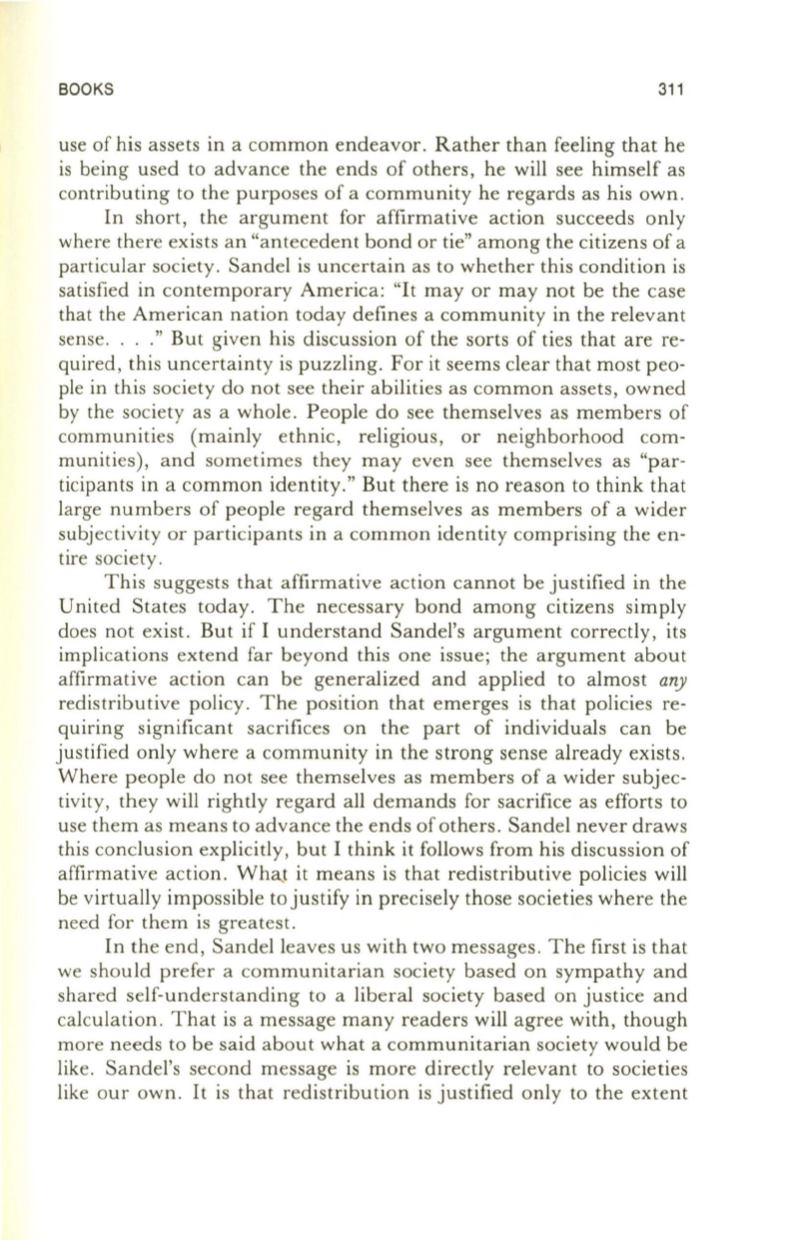
BOOKS
311
use of his assets in a common endeavor. Rather than feeling that he
is being used to advance the ends of others, he will see himself as
contributing to the purposes of a community he regards as his own.
In short, the argument for affirmative action succeeds only
where there exists an "antecedent bond or tie" among the citizens of a
particular society. Sandel is uncertain as to whether this condition is
satisfied in contemporary America: "It mayor may not be the case
that the American nation today defines a community in the relevant
sense...." But given his discussion of the sorts of ties that are re–
quired, this uncertainty is puzzling. For it seems clear that most peo–
ple in this society do not see their abilities as common assets, owned
by the society as a whole . People do see themselves as members of
communities (mainly ethnic, religious, or neighborhood com–
munities), and sometimes they may even see themselves as "par–
ticipants in a common identity." But there is no reason to think that
large numbers of people regard themselves as members of a wider
subjectivity or participants in a common identity comprising the en–
tire society.
This suggests that affirmative action cannot be justified in the
United States today. The necessary bond among citizens simply
does not exist. But if I understand Sandel's argument correctly, its
implications extend far beyond this one issue; the argument about
affirmative action can be generalized and applied to almost
any
redistributive policy. The position that emerges is that policies re–
quiring significant sacrifices on the part of individuals can be
justified only where a community in the strong sense already exists.
Where people do not see themselves as members of a wider subjec–
tivity, they will rightly regard all demands for sacrifice as efforts to
use them as means to advance the ends of others. Sandel never draws
this conclusion explicitly, but I think it follows from his discussion of
affirmative action. Wha..t it means is that redistributive policies will
be virtually impossible to justify in precisely those societies where the
need for them is greatest.
In the end, Sandel leaves us with two messages . The first is that
we should prefer a communitarian society based on sympathy and
shared self-understanding to a liberal society based on justice and
calculation. That is a message many readers will agree with, though
more needs to be said about what a communitarian society would be
like. Sandel's second message is more directly relevant to societies
like our own. It is that redistribution is justified only to the extent


